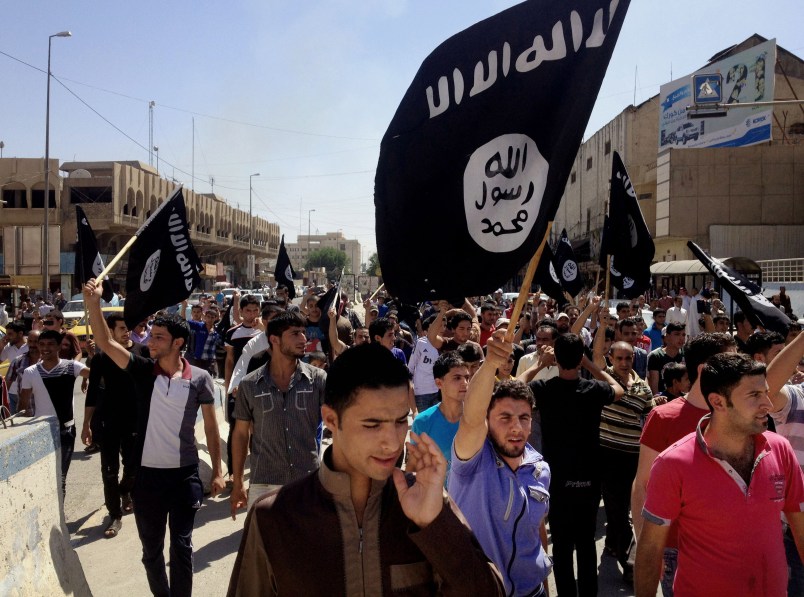Even setting aside the mania about different electoral prediction models, it seems clear something significant has happened in the last ten days or so, perhaps ephemeral but significant nonetheless. And that something is a clear shift of Senate fortunes in favor of Republicans. The main drivers are the races in Alaska, Iowa and Colorado.
In each case, there are internal reasons put forward to explain the change … a debate, a major gaffe, previously thin poll data. But there’s a separate factor; and I wonder whether it’s playing a roll buoying Republican candidates. That is, the return of terror politics.
Something very big happened in June when ISIL burst out of Syria and overran a huge chunk of Sunni Iraq. But in the field of US domestic opinion something much bigger and graver happened in September when ISIL beheaded US reporter James Foley and again when they behead fellow journalist and captive Steven Sotloff. (The filmed executions of other foreign nationals followed.) Public opinion data seems to show that these two incidents had a massive and galvanizing effect on US public opinion – driving a public extremely unsupportive of further foreign military operations toward overwhelming support for attacking ISIL.
To make the point clear, what happened in June was a very big deal in terms of the already fractured and fragmented state system in the Arab Middle East. But the executions changed the equation for the US public. It goes without saying that the executions were grisly and brutal, deeply disturbing and revealing about the character of this group. So June and September have an obvious connection. But hundreds of thousands of Syrians and Iraqis have been killed in recent years. Thousand of US military personnel have been killed. And even many US civilians and captives have been killed.
But these executions were packaged – there’s no other way to put – as brilliantly evil propaganda. That made all the difference in the world in terms of the shifting sands of US public opinion which soon bore fruit in shifting US policy.
And that change has spread beyond attitudes toward fighting abroad. It’s brought terror politics back to the forefront back home – or at least given them more salience than they’ve had for years, at least for the moment.
Dick Polman notes this and further cites how Republicans candidates across the country are now pushing ISIL-charged terrorism themes in their ads. Much was different but it does seem like an effort to recast 2014 as 2002 when not terribly popular Republicans and a President with declining popularity (though still respectable in absolute terms) managed to beat expectations by pushing targeted ‘soft on terror’ themes against Democrats.
This all impressed itself on me again at the end of last week when the new Iraqi Prime Minister blurted out that his security forces had discovered a ISIL-related terror plot against the US or New York City subway system (something that seems and seemed highly dubious) and cable news went into the kind of frenzy we remember from a decade ago.
I have been working on a post for a week or so about the effectiveness of ISIL propaganda and whether we’ve pivoted again in the field of national security posture. But for now I want to float the possibility that these changes we’re seeing on the Senate outlook may be the result of a changing tide of national feeling on safety and insecurity, pushing a subtle but important shift in electoral outlook. Perhaps it’s passing. Perhaps these are changes internal to the individual races. But keep the possibility in mind.






